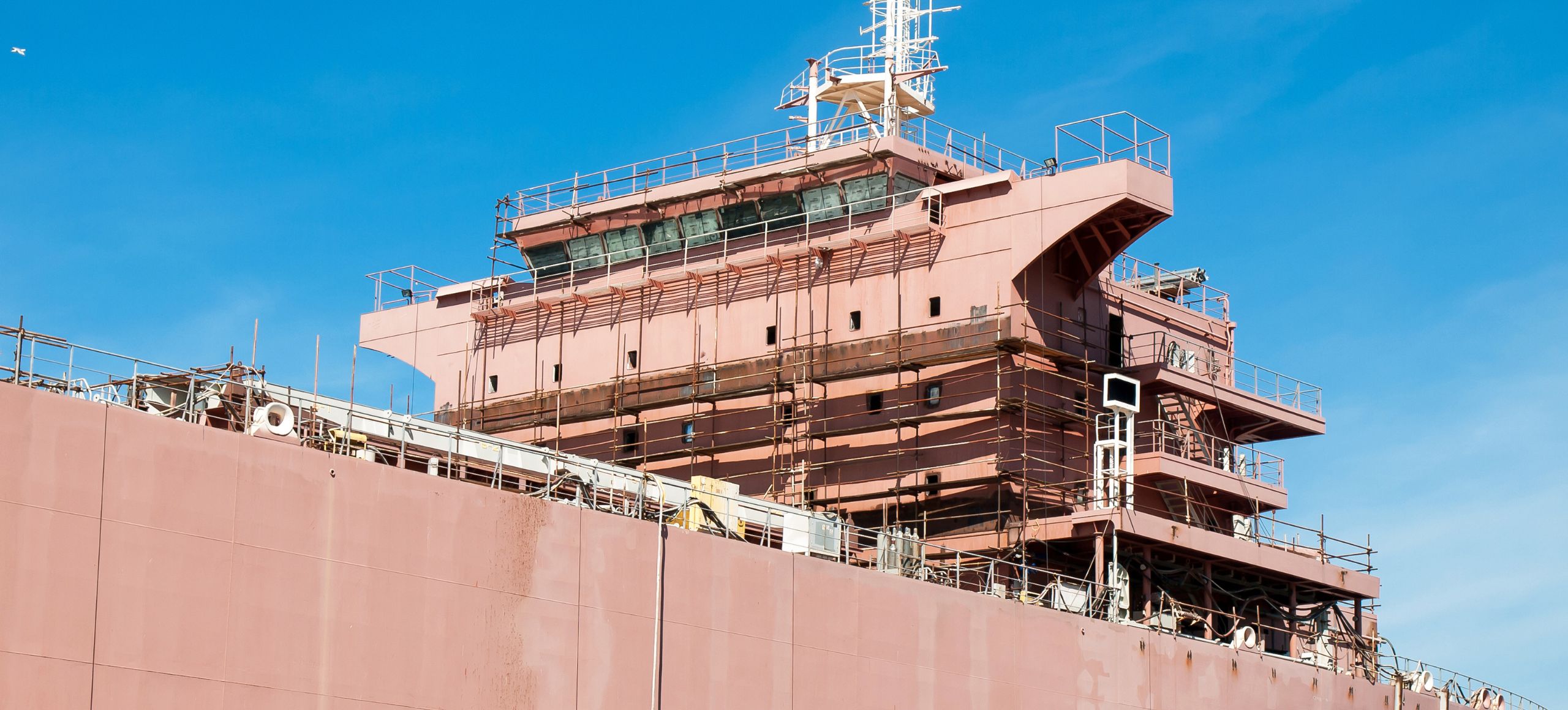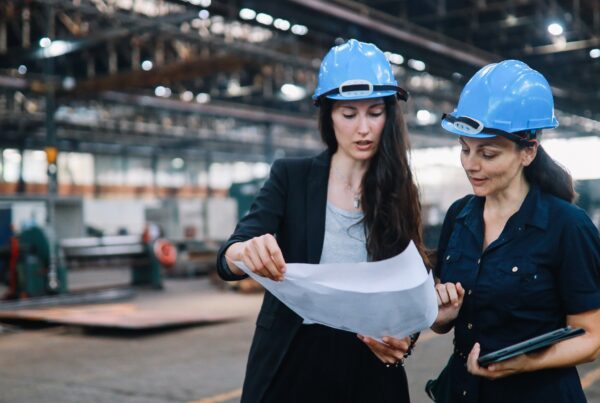At the heart of our beloved industry lie shipyards, specialised facilities where ships are constructed, repaired, and maintained. These shipyards are crucial to the shipbuilding process, providing the infrastructure, expertise, and innovation needed to produce modern vessels.
This blog explores the indispensable role of shipyards in the industry, diving into their operations, types, innovations, and future trends.
The Importance of Shipyards
Shipyards are the epicentres of maritime construction and innovation. They are where raw materials are transformed into the advanced vessels that power global trade and defence. The importance of shipyards in the shipbuilding process cannot be overstated; they provide the physical space, technical know-how, and industrial capabilities required to build everything from smaller recreational boats to much, much larger container and naval ships.
Shipyards are integral to ensuring the safety, efficiency, and sustainability of ships. They are responsible for adhering to stringent international regulations and standards, which govern everything from design, construction and maintenance to environmental emissions. Without shipyards, the complex process of shipbuilding—requiring precise engineering, skilled labour, and advanced technologies—would be impossible to manage.
Overview of Shipyard Operations
As you can probably imagine, shipyard operations encompass a wide range of activities, from initial design and planning to final construction and delivery. The process begins with the conceptualisation and design phase, where engineers and architects create detailed blueprints and models of the vessel. This is followed by the procurement of materials and components, which must meet high standards of quality and durability.
Construction typically involves several stages: hull fabrication, assembly of sections, installation of systems (such as propulsion, navigation, and safety), and outfitting of interiors. Advanced shipyards employ advanced techniques such as modular construction, where sections of the ship are built separately and then assembled, streamlining the process and reducing build times.
Throughout this process, shipyards must coordinate a wide array of skilled trades, including welders, electricians, pipefitters, and painters. Quality control is paramount, with rigorous testing and inspections at every stage to ensure the vessel meets all specifications and regulations. Finally, the ship undergoes sea trials to test its performance before delivery.
Types of Shipyards
Commercial Shipyards
Commercial shipyards specialise in the construction of cargo ships, tankers, passenger ships, and other vessels designed for commercial use. These shipyards are crucial for global trade, producing the ships that transport goods across oceans. They focus on building vessels that maximise cargo capacity, fuel efficiency, and safety.
Military Shipyards
As suggested, military shipyards are specialised facilities dedicated to building and maintaining naval vessels. These shipyards are essential for national defence, producing warships, submarines, and other military vessels equipped with advanced weaponry and technology. Military shipyards often have stringent security measures and are staffed by highly skilled personnel trained in the latest defence technologies.
Large-Scale Shipyards
Large-scale shipyards are capable of constructing the biggest and most complex vessels, including mega-container ships, LNG carriers, and aircraft carriers. These shipyards have extensive facilities, including dry docks, cranes, and assembly lines, allowing them to handle multiple large projects simultaneously. They are often located in strategic coastal areas with deep-water access to accommodate the launching of massive ships.
Small-Scale Shipyards
Small-scale shipyards play a vital role in the industry by focusing on the construction and repair of smaller vessels, such as yachts, fishing boats, and patrol boats. These shipyards are often more flexible and responsive to custom orders, offering tailored solutions to meet specific client needs. Despite their smaller size, these shipyards are critical for supporting local economies and niche markets within the maritime industry.
Innovations in Shipyards
Automation and Robotics
The integration of automation and robotics in shipyards is revolutionising the shipbuilding process. Automated welding, cutting, and assembly systems enhance precision and efficiency, reducing production times and labour costs. Robotics also improve safety by performing hazardous tasks that would otherwise put human workers at risk, whilst advanced software systems aid in design and project management, ensuring seamless coordination between different stages of construction.
Green Shipyards
Environmental sustainability is becoming increasingly important in the shipbuilding industry. Green shipyards implement eco-friendly practices such as waste reduction, energy-efficient processes, and the use of sustainable materials. They also focus on reducing emissions and minimising the environmental impact of shipbuilding activities. Examples include the use of solar power, recycling programmes, and green certifications for shipyard operations.
Modular Construction
Modular construction involves building sections of a ship separately and then assembling them together at the shipyard. This method offers several benefits, including reduced construction time, improved quality control, and cost savings. Modular construction also allows for greater flexibility in design and easier incorporation of advanced technologies. However, it presents challenges such as the need for precise coordination and alignment of modules during assembly.
Future of Shipyards
Trends and Predictions
The future of shipyards is shaped by ongoing technological advancements and changing industry demands. Key trends include the increasing use of digital technologies such as artificial intelligence, virtual reality, and the Internet of Things (IoT) to enhance design, construction, and maintenance processes. Additionally, there is a growing focus on sustainability, with shipyards investing in green technologies and practices to meet stricter environmental regulations.
Another significant trend is the rise of smart shipyards, which leverage data analytics and connectivity to optimise operations, improve decision-making, and enhance productivity. The development of autonomous ships is also likely to impact shipyard operations, requiring new skills and technologies to build and maintain these vessels.
Preparing for Change
To adapt to future challenges and opportunities, shipyards must embrace innovation and invest in advanced technologies. Continuous training and development of the workforce are essential to keep up with the evolving demands of the industry. Collaboration with technology providers, research institutions, and other stakeholders can drive innovation and foster the development of new solutions.
Shipyards should also focus on sustainability, implementing green practices and exploring alternative energy sources to reduce their environmental footprint. Staying ahead of regulatory changes and industry standards is crucial to maintaining competitiveness and ensuring long-term success.
Marine People: Here to help
At Marine People, we work with all types of shipbuilders and shipyards across the globe, from large-scale commercial and military shipyards to smaller, specialised facilities. We understand the vital role that shipyards play in driving innovation and excellence in the maritime industry.
Our services are designed to connect talented professionals with the best opportunities in shipbuilding. For candidates looking for a new role, we offer personalised support and access to a wide range of positions in top shipyards worldwide. For clients seeking to improve their teams, we provide a deep pool of highly skilled professionals, ensuring you have the right expertise to meet your specific needs.
Whether you’re a candidate seeking your next career move or an employer looking to strengthen your team, Marine People is here to support you. Let us help you navigate the future of shipbuilding with confidence and success.
Head back to our blog page and discover the latest trends, news, career advice, and stay connected with the ever-evolving landscape of the maritime industry.








